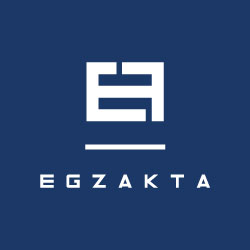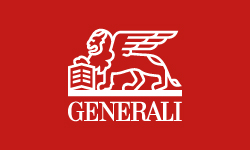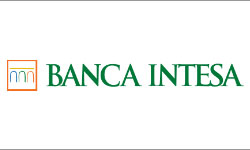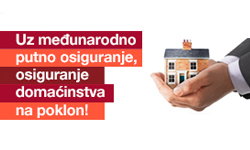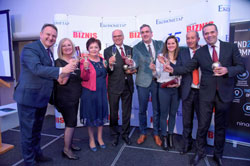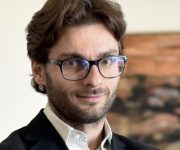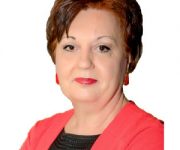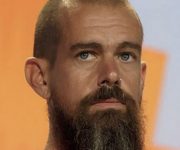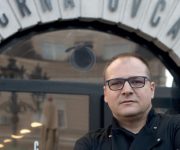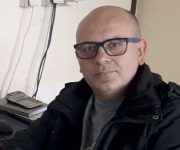How he has managed to stay general manager through all socio- economic and political changes and create one of the most successful Serbian companies, for which the German Stada paid almost half a billion dollars
Hemofarm factory in Vršac was founded on 1 June 1960. and is the most successful domestic pharmaceutical company with 45 percent market share. Almost 49 percent of total sales are achieved by Hemofarm on the markets of over 27 countries. Hemofarm comprises a parent company and 28 affiliates, of which 18 does business in the country and abroad. The basic activity is medicine production, with the application of a modern technology and in accordance with GMP, GLP, MCA and ISO regulations. Production in the country is conducted in six production facilities in Vršac, and in the factories in Podgorica, Šabac, Dubovac, Bački Petrovac, Jasenovo and Srpska Crnja.
Hemofarm is having a 47th anniversary this year, and the engineer of technology Miodrag Babić has been head of the company for 25 years. He was born in Lazarevo, nearby Zrenjanin, in 1951. He became general manager of Hemofarm in 1982. and has been president of Hemofarm Group since 1996.
In his career he has, thus, gone through the period of real socialism and a strong SKJ (Communist Union of Yugoslavia), survived protests and party meetings, the falling apart of SFRY (Socialist Federal Republic of Yugoslavia) and war conflicts in the surrounding, hyperinflation and bombing and finally, with the democratic changes of 2000. the “crisis committees” as well.
Acquaintance with Đinđić
In the year 1994. I met Zoran Đinđić, when he first came to Hemofarm. After that we occasionally met, talked but were not actually friends. Zoran was for me one of our wisest politicians. He was a man who wanted and could learn fast.
How has he managed to remain head of the company through all socio- economic and political changes and to make Hemofarm one of the most successful domestic companies, for which the German Stada paid almost half a billion euros last year?
There is no recipe for that, Miodrag Babić says in the interview for Magazin Biznis. Perhaps an answer could be discerned in the unusual professional biography that follows:
– Now, when I look back a little bit, is seems to me that not so many years have passed. It is as if everything happened within a much shorter time span. That indicates that I have enjoyed this business. I was lucky to be fulfilled by work, and that thanks to a good team which I managed to put together and the spirit of winning that we nurtured, I have also had much enjoyment. There was, of course, a lot of sacrifice and effort.
That is an answer to the question how one can remain in the same firm for 25 years. Frequently I am asked- how I did not get tired of it.
When I came in Hemofarm on 1 March 1982. I was just about to turn 31. It was not only that I was young, but it had also been unusual to get a four year mandate by answering an advertisement as I did. Although at that time the party was strong and had a hand in everything, I had been advised to apply although I was not the man of the party, simply because I had already been taken note of as a successful engineer in Brixol in Vršac, where as a beginner I built a PVC conditioner factory. I was running an operation business on the construction site and that was the first and an invaluable experience, with many shocks, poorly paid, but it did not matter to me. I was only interested in the opportunity of learning. I started working with the Germans and have not parted from them ever since those days. Always Germans. Not exclusively Germans but they were always there. Those were the “wolves” in the engineering and technological sense. I learned a lot from them, but also from the people from “Azotara” (Fertilizer Factory) in Pančevo and Prva iskra from Barič.
We completed the factory in 18 months and for the next three years I was the director of that factory. When we had paid off a loan on relatively unfavourable terms for the construction of that factory and I had handed in to SDK (domestic payment system) the annual balance sheet for the year 1981. I transferred to Hemofarm.
There I was entering a completely different story. Until then I had worked with 20,000 ton measurements, and now I had come to milligrams! That is how you slowly begin to learn why pharmacologists are such pedants when it comes to their milligrams. However, I quickly realized what a huge responsibility that was. A milligram of a substance less- and you do not have a medicine, and with a milligram more, you get poison. A sense of enormous responsibility imposed on me then. And behind that there is a lot of excellent and expert equipment and outstanding individuals trained to use it and follow not only all the production phases, but also to remove side effects. And if there were side effects, they were to be made as few as possible.
Of course I had a great respect for that task, for the company I had entered and for the work that was expected of me there. I did not have much time to prepare myself. The previous director had resigned. The company was small and they were taking no risks. They were playing it safe. I had to change that.
They had built a dialysis machine factory in cooperation with the German Fresenius. They had invested the then thirteen million Deutsch marks and left it unused for a few months?! They had had a serious disagreement with the Germans. For that reason the partner did not want to deliver raw materials worth a couple of hundred thousand marks to them without credentials. Credentials are required when you do not know the partner and until you have made sure. It all indicated that there was something wrong with interpersonal relationships and that first they had to be sorted out. I took my seat opposite the president of Fresenius dr Kröner, who was at that time around 40 years older than I and we started solving each problem in turn. And all that was happening in the presence of the former director. It was a great surprise for the German, but that small stratagem gave an excellent result. Already on 21 May 1982.we opened the dialysis machine factory, which enabled an easier and more comfortable life for at least seven thousand people of former Yugoslavia who were seriously ill with the disease of the kidneys. That year Dr Krener and I met as many as six times.
In any case, it was an important event at the beginning of my career. There was no going back. I continued to learn and master everything related to the production of medicines- from the names of medicines and raw materials to all the intermediate stages. Since I am a technologist that was no problem at all. Already in 1984.we invested into the modern industrial production of infusion solutions. Not as a trade any more, but as a serious production. It was a real technological wonder, the first appearance of these machines in the Yugoslavia of that time. It is very important that it was the first time that our experts had given a technological project. That was in fact the beginning of our Hemofarm Engineering.
In year 1992. the international embargo of the UN came. Then I realized, and now I know, that no sanctions endanger the regime, but only bring suffering to the people. If Serbia had not had medicine producers, and it did because we managed any way we could, it would have been tragic for the population. That know-how of ours that we had trouble with was useful for us to help other unlucky people under the sanctions. We were lucky to have had during all those years under the sanctions enough of our bread and medicines. We obtained an American visa by pleading in 1993. and travelled to New York to study the sanctions from close up. And in the United Nations, after the name SR Yugoslavia it was written in brackets: Serbia and Montenegro. Exactly the name our country would in reality bear a few years on…
At the moment I have an American visa for a three-year period, which means that have sufficiently checked me. I greatly appreciate that country and the opportunities it gives. We have opened a firm in America and a two office branch in Pennsylvania Avenue, opposite the White House. That also is, probably, not accidental either…
In the year 2001. another story was starting. A good opportunity to build a factory in Russia presented itself to us, and not only to export medicines to that country. In August last year there was the German Stada. The Germans again. And Stada came as a natural expression of my effort to do everything on time. But to get to that big strategic partner it took a lot of time and many huge steps to take… We got 496 million euros for 97.3 percent of shares.
On 9 March 2007. we signed a contract with the new owner on the further running of Hemofarm for four years. And that will be the end of my being the director in Hemofarm. What I will do afterwards? I do not know. I will see. But it will certainly have less to do with operation than is the case with the present one. I have done enough here. Perhaps, after all, I will accept a seat in the Supervisory Board so as not to part from Hemofarm as my house too abruptly… – said Miodrag Babić for Magazin Biznis.
K. S.

